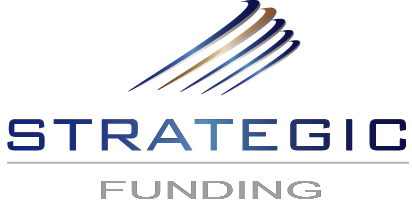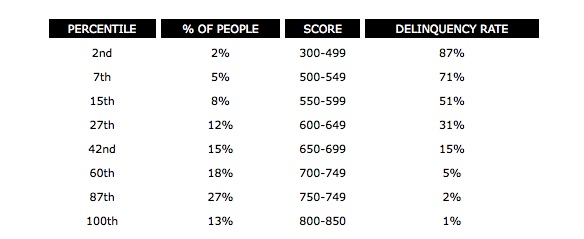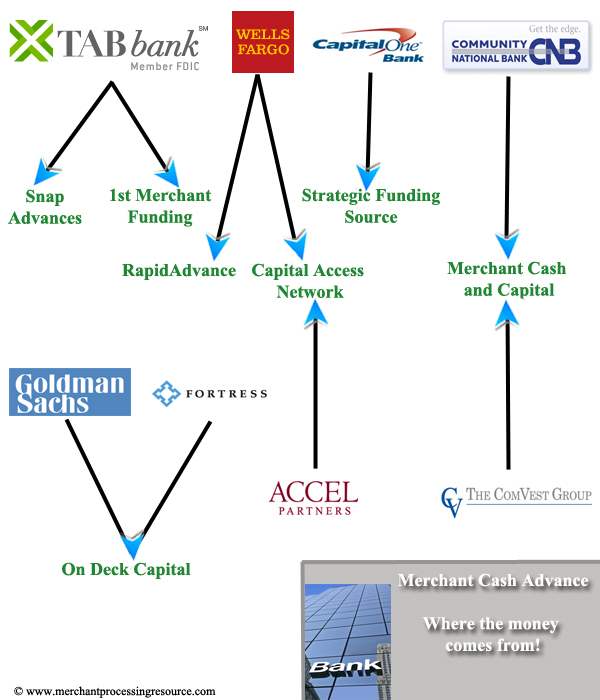ACH Advances
More Companies Cheer For Charity
October 5, 2012The alternative business lending industry has raised even more money for charity thanks to four new companies. Through a fantasy football competition that started with the beginning of the NFL season, each of the twelve participants are representing individual non-profit organizations. At the end of the season, all of the money raised will be donated to the winning team’s charity. Though registration to compete ended five weeks ago, outside individuals and companies are free to add to the total. One of the following charities with be the lucky recipient of the prize:
- Network For Teaching Entrepreneurship
- Epilepsy Foundation
- Society of St. Vincent De Paul
- Kiva
- ALS Association
- 100 Urban Entrepreneurs
- Gift of Life Bone Marrow Foundation on behalf of the The Silver Project
- The Missionaries of Our Lady of Divine Mercy
- Smile Train
- Cystic Fibrosis Foundation
- American Heart Association
- Distressed Children & Infants International
Special thanks to the new contributions from:
Entrust Merchant Solutions
Based in New York City, Entrust has been helping small businesses get financing for more than five years.
Strategic Funding Source
From the flashy district of Times Square in New York City, Strategic is one of the oldest and most successful firms in the Merchant Cash Advance (MCA) industry. They can teach you how to become your own MCA company:

Capital Stack, LLC
Capital Stack is a Brooklyn, NY based financing provider that specializes in high risk deals structured via ACH. They’re also a co-founder of a new industry forum, DailyFunder.com.
Paramount Merchant Funding
Yet another New York City merchant financing company, Paramount is one of the fastest growing firms in the industry.
They’re also helping a separate cause at the same time. Help Paramount raise money for Noah’s Hope!

Dear Friends and Family,
Paramount Merchant Funding is hosting a bowling night on November 2nd to help raise money for Noah’s Hope.
About Noah’s Hope:
Noah’s Hope was started by Jennifer and Tracy VanHoutan, the parents of Noah and twin girls Laine and Emily. Noah and Laine are both battling LINCL-Batten Disease, a rare genetic illness. They have lost the ability to speak, as well as their balance and mobility. At this time, LINCL-Batten Disease is always fatal, usually between the ages of eight and 12.
Fewer than 450 children in the United States have LINCL-Batten Disease, so it doesn’t receive the attention it should. Paramount Merchant Funding has decided to help this great cause. We are raising money to donate to Noah’s Hope in the hopes of finding a cure for LINCL-Batten Disease. All donations, no matter how big or small, help make a difference in the fight against LINCL-Batten Disease.
CLICK HERE TO SEE HOW YOU CAN HELP!
About Paramount Merchant Funding:
Paramount Merchant Funding is a merchant funding company based in Midtown, New York City. We provide capital to businesses in the United States, as well as Canada. Paramount was founded in 2008 and provides professionals with a whole host of funding options depending on their stage of business.
Choose how you want to help!
1. Click HERE to donate money.
2. Donate something to give away at our raffle.
For more information email erika@empiremerchantadvance.com.
We appreciate any and all donations made for this cause!
Sincerely,
The Paramount Merchant Funding Team
It’s awesome what everyone is doing. You’re making the country a better a place!
– Merchant Processing Resource
https://debanked.com
Silicon Valley’s One Punch Knockout
October 4, 2012“This morning I woke up, brushed my teeth, and hopped in my hovercraft to go to the office. As soon as I arrived, I began my routine of playing ping-pong against my co-workers while computers performed the automated tasks I had set for them. Then I went to the gym, came back, and learned that our web portal had generated 12,000 leads, closed 7,000 deals, and funded 5,000 merchants. It was an exhausting day…” — A Senior Account Executive from the year 2013.
 We’ve been offering insight on the 2012 invasion of Silicon Valley into the Merchant Cash Advance (MCA) industry. Excuse us, it’s called the “merchant financing industry” now. California technology companies are bringing money, yes, but most importantly, bringing their treasure trove of technologies to companies that were mostly satisfied with the status quo. But are America’s small businesses ready to do business Silicon Valley style or have MCA companies had it right all along, to operate in the way that small business is most comfortable with?
We’ve been offering insight on the 2012 invasion of Silicon Valley into the Merchant Cash Advance (MCA) industry. Excuse us, it’s called the “merchant financing industry” now. California technology companies are bringing money, yes, but most importantly, bringing their treasure trove of technologies to companies that were mostly satisfied with the status quo. But are America’s small businesses ready to do business Silicon Valley style or have MCA companies had it right all along, to operate in the way that small business is most comfortable with?
Two weeks ago, California enacted a law that will allow computerized driverless cars to drive on the road. Cars that drive themselves… this is business as usual in parts of California where everyday things such as gasoline, wires, and paper money don’t exist anymore. There, it is believed that clipping coupons from newspapers is something that the Pilgrims did on the Mayflower. There, applying for a small business loan should be as easy as using your brain waves to telepathically connect with a bank’s computer and having the funds instantly transferred to your bank account. There, is a sense that the rest of the country is just like them…. except it’s not.
If you’ve ever had the pleasure of being an MCA underwriter, you know why antiquated funding companies aren’t going to go quietly into the night. We got to speak with one veteran on condition of anonymity. His words:
We had a guy with good credit, processing $15,000 a month in credit card sales, looking for $20,000. He’d been in business for fourteen years and it seemed like a home run but it took seven weeks to close. He didn’t have a printer or a scanner and he had to drive twenty miles to the nearest Fedex/Kinkos every time he wanted to send us something. On his third trip, his ’94 Corolla broke down and we had to wait a few days until he could find a friend’s car to borrow to send the documents.
These situations do not occur every day, but it is evidence that automation will not singlehandedly knock everyone else out with one punch. There is a technology gap in America. Statisticians point out that 78% of Americans use the Internet, but there is a whole generation that doesn’t trust it with their most sensitive information or have the capabilities to use it to its fullest extent. Would a Silicon Valley takeover of the MCA industry alienate them and leave many of America’s small businesses once again without a shoulder to lean on?
Program or be Programmed
The title of this segment here is the title of a book written by Douglas Rushkoff. An article on CNN commented at length about it and its revelations about the digital age. Americans need to learn all the basics when they’re young. Your PHPs are just as important as your ABCs and 123s. CNN interestingly states:
It’s time Americans begin treating computer code the way we do the alphabet or arithmetic. Code is the stuff that makes computer programs work — the list of commands that tells a word processor, a website, a video game, or an airplane navigation system what to do. That’s all software is: lines of code, written by people.
—Just a couple of years ago, I was getting blank stares or worse when I would suggest to colleagues and audiences that they learn code, or else. “Program or be programmed,” became my mantra: If you are not a true user of digital technology, then you are likely being used by digital technology. My suggestion that people learn to program was meant more as a starting point in a bigger argument.
—According to Calacanis, each employee who understands how to code is valued at about $500,000 to $1 million toward the total acquisition price. One million dollars just to get someone who learns code.
Read those last two lines? Each employee that understands how to code is worth up to $1 million. Are they seriously teaching people in school that Microsoft Office proficiency is a leg up in the business world?
College graduates that know more than one language have an edge over people that don’t. But speaking Chinese, Spanish, or Arabic won’t get you as far as JavaScript. According to IT World, JavaScript is the most highly ranked programming language in the world as measured by its use and popularity. Learn French and you’ll really enjoy a vacation in Paris. Learn PHP, Python, or Ruby and you just might become the King of France.

Am I Already a Dinosaur?
No! Don’t let those 10 year olds with a software empire get you down. Anyone can learn and you need not spend $30,000 a year on college tuition to do it. Codecademy can help complete beginners learn code for free. Get real good at it and you may earn yourself a $50,000 salary increase.
One Punch
Silicon Valley with their exotic computer languages and cars that drive themselves may present a challenge to the MCA industry, but many firms will be able to hang on for a long, long time. Some people still pay by check at the grocery store and yes, many business owners would rather not use online banking, no matter how safe they’re told it is. But there will come a time when being bilingual means being able to write Java and Perl. Oh there will come a time when driving twenty miles to Kinkos in a car that one must drive themselves to fax a document that will never again exist on paper, will be an experience we confuse with the Pilgrims trip on the Mayflower.
Everyone should at least take some basic lessons on self-defense. Silicon Valley is coming out fighting. They might not knock you out, but it couldn’t hurt to have a white belt in JavaScript. Anything to keep you in the ring just a little bit longer.
< ?php echo "- Merchant Processing Resource"; ? > 😉
https://debanked.com
Article condensed 10/8/12
Ten Days
September 28, 2012 It’s been ten days since Kabbage announced they had raised $30 million to fuel the growth of their Merchant Cash Advance (MCA) operations at home and abroad. MCA is changing faster than we can report it:
It’s been ten days since Kabbage announced they had raised $30 million to fuel the growth of their Merchant Cash Advance (MCA) operations at home and abroad. MCA is changing faster than we can report it:
Former Yahoo CEO joins Kabbage. Hello Silicon Valley takeover! Quotes from the story:
Kabbage is providing an old service, merchant cash advances, with a new twist
Did they just call merchant cash advances old?
Kabbage is rapidly reshaping the small business financing space in the same way that PayPal reshaped the payments space over the last decade
Start believing this…

Amazon enters the MCA industry with a new division called Amazon Lending. Quotes:
Amazon is lending up to $800,000 to some merchants, Wingo said, adding that this is a pretty aggressive entrance into merchant financing.
Merchant financing…quite possibly the term that will replace “merchant cash advance” in the next couple years. Notice AMEX’s advance program is called the same thing. Trend anyone?
Amazon is competing against a start-up called Kabbage, which extends cash advances ranging from $500 to $50,000
They apparently don’t feel anyone else is a threat in the online space.
“We’re flattered that Amazon is building a business modeled on ours,” said Kabbage co-founder Marc Gorlin. “It’s validating that big companies are getting into the small business financing space.”
Dear Kabbage, you did not invent this model.
The kicker to Amazon’s new program? They charge up to 13% interest annually, on pace with what a little company in California named Opportunity Fund claimed was flat out unprofitable. Does that make them yet another new company walking around with a giant Kick-Me sign on their back? Some industry insiders would argue that offering these low rate programs are like swallowing dynamite.
We did a little bit of digging on this new program to see exactly what Amazon was up to. One of their prospective merchants posted this excerpt of the fine print:
Subject to applicable law, you will be in default under this Loan Agreement if any of the following events occur: ……..
(iii) your gross merchandise sales on Amazon.com as reported in your Seller Account (“GMS”) in any month is less than 50% of your lowest GMS on Amazon.com in any of the prior 12 months,(iv) the collective value of your units stored in Amazon fulfillment centers in the US, based on your list price of those units on Amazon.com, (“FBA Inventory Value”) in any month is less than 50% of your lowest FBA Inventory Value in any of the prior 12 months,
Except as otherwise required by applicable law, if you are in default, subject to any right you may have under applicable law to receive notice of and to cure such default, you agree that we may in our sole discretion exercise any remedy available to us at law or equity or take any or all of the following actions: (I) declare the unpaid balance of your Loan to be immediately due and payable, (II) enforce our rights as a secured party by directing Amazon Services LLC to reserve, hold, and pay to us an amount up to the unpaid balance of your Loan from your Seller Account disbursements until the unpaid balance of your debt under this Loan Agreement is paid in full, (III) enforce our rights as a secured party, by taking possession of your units stored in Amazon fulfillment centers and disposing of them in accordance with the Uniform Commercial Code,……………..
If this Loan Agreement is referred to an attorney (who is not our salaried employee) to collect the amount you owe or otherwise enforce the terms of this Loan Agreement, you agree to pay our reasonable attorneys’ fees, court costs and other costs of collection to the fullest extent not prohibited by applicable law.
6. Financing Statements. You authorize us to file and, as we may deem necessary or desirable, to sign your name on any documents and take any other actions that we deem necessary or desirable to ensure that our security interest in any item of inventory or your Seller Account is properly attached and perfected.
There’s some language in there that would make a lot of MCA companies jealous, particularly the section that states a 50% drop in sales is an automatic default!
Thoughts? Share them on DailyFunder.
– Merchant Processing Resource
https://debanked.com
Merchant Cash Advance Community Teams up for Charity
September 27, 2012You may have seen the news story somewhere already: Twelve Members of the Alternative Small Business Lending Community Join Forces for Charity, but you haven’t heard the background of all the companies involved. We’d like to shed some light on the competitors that are battling it out in an epic competition of fantasy football:
Merchant Cash Group
Based in Gainesville, FL, they are a charity league co-founder and direct provider of capital. They recently launched their Fast Funding Equity Program, a unique financial solution to merchants that may not be able to get approved anywhere else.
Competing for: Kiva
Kiva is a non-profit organization with a mission to connect people through lending to alleviate poverty.

Rapid Capital Funding
Based in Miami, FL, they are a direct financing source. They are one of the industry’s fastest growing companies and recently acquired a major credit facility from Veritas Financial Partners.
Competing for: Epilepsy Foundation
Financial Advantage Group
Based in Land O’Lakes, FL, they have been a financial provider since 2004. They have helped fund some big name franchises including individual locations for Sonic, Dunkin’ Donuts, and Quiznos.
Competing for: Society of St. Vincent De Paul
The Society of St. Vincent de Paul offers tangible assistance to those in need on a person-to-person basis.



RapidAdvance
Based in Bethesda, MD, RapidAdvance is one of the oldest and largest MCA firms in the country. They are often called upon to offer expert insight on the industry.
Competing for: Cystic Fibrosis Foundation
This foundation is the world’s leader in the search for a cure for cystic fibrosis.
Sure Payment Solutions
Based in New York City, they made a name for themselves by offering low credit card processing rates to merchants nationwide and expanded on that success by providing businesses with financing. They are well known for their industry blog, Sure Resources.
Competing for: ALS Association
The ALS Association is the only national non-profit organization fighting Lou Gehrig’s Disease on every front.

Meridian Leads
Meridian provides direct marketing programs for financial services companies. They are one of the most used and acclaimed marketing firms in the MCA space.
Competing for: 100 Urban Entrepreneurs
100 Urban Entrepreneurs is dedicated to helping provide a meaningful, long-term economic boost to urban communities throughout the United States by supporting minority entrepreneurship at its earliest stages.
Merchant Cash and Capital

Headquartered in New York City, they have funded over half a billion dollars to small businesses since 2005. They’re heavily involved in the financing of retail and food service franchises. Check out their new website.
Competing for: Gift of Life Bone Marrow Foundation – on behalf of The Silver Project
Gift of Life is a world leader facilitating transplants for children and adults suffering from many life-threatening diseases, among them leukemia and lymphoma.

NVMS, Inc.
A Manassas, VA firm, NVMS offers a full range of inspection services for the Mortgage, Banking, Commercial and Residential Property, Construction and Insurance industries. They’ve established a stellar reputation and are the inspection company of choice for many MCA providers.
Competing for: The Missionaries of our Lady of Divine Mercy
They provide humanitarian assistance to those suffering from poverty
United Capital Source
Based in Long Island, NY, United Capital Source has garnered much attention from their recent spate of seven figure financing deals. They are constantly adding new staff to satisfy the incredible demand for funding from mid-sized businesses.
Competing for: Smile Train
Smile Train partners with local surgeons in developing countries to provide free cleft care for poor children and follow-up services 24/7, 365 days a year.
Swift Capital

From the wonderful city of Wilmington, DE, Swift Capital has made a major splash in the alternative business loan space with low cost working capital. They have helped over 10,000 small businesses nationwide.
Competing for: American Heart Association
This association helps to build healthier lives, free of cardiovascular diseases and stroke.

TakeCharge Capital
TakeCharge Capital has offices in Connecticut, Mississippi, and Florida. They built their reputation on spectacular payment processing services and grew into becoming a national financing provider.
Competing for: Distressed Children & Infants International
DCI’s primary objective is to provide children in rural areas the opportunity to receive an education instead of entering into child labor.

Raharney Capital, LLC
Raharney Capital is a Merchant Cash Advance industry consulting firm based in New York City. They are a charity league co-founder and the operators of this very website, Merchant Processing Resource.
Competing for: Network for Teaching Entrepreneurship
This organization’s mission is to provide programs that inspire young people from low-income communities to stay in school, to recognize business opportunities and to plan for successful futures.
The above companies are participants in the Merchant Cash Advance/ Microloan fantasy football league. Other firms within the same industry are constantly making charitable efforts as well, such as Yellowstone Capital. They recently raised money to help Hatzalah Volunteer Ambulance Corp acquire two ambulances. Noticeable company donors included Strategic Funding Source and Benchmark Merchant Solutions.
All of the mentioned firms are strongly recommending others to donate to the charities they are representing. In addition, any company or person that would like to contribute to the competition’s prize donation can do so by contacting sean@raharneycapital.com or heather@merchantcashgroup.com. We are not accepting contributions to individual charities, only to the prize donation that will be given to the winner’s charity. $5,850 has already been pledged to the prize as of the publication of this story.
– Merchant Processing Resource
https://debanked.com
New and improved New York City office location coming soon!
1375 Broadway, 6th Floor, New York, NY 10018
Donate to one of the represented charities today!

The End of an Era
September 19, 2012It’s the end of an era. Sound ominous for a blog that reports on the Merchant Cash Advance (MCA) industry? It shouldn’t. In the last 10 years, MCA firms played in the minor leagues. No one was really paying attention to them and truthfully, a lot of critics didn’t think this business model would still be around. But today it still stands, funders are still funding, and this blog is practically struggling to keep up with the incredible amount of action that is taking place. Coincidentally, 2012 marks the end of the Mayan Calendar. Yes, it’s the end of an era.
MCA Goes From 0 to 60
There were a few big firms in the Mid-2000s (RapidAdvance, Merchant Cash and Capital, Strategic Funding Source, AdvanceMe, etc.) and they’ve all experienced modest success. It was “modest” in the sense that it is nothing compared to today’s standards. The level of play is changing. Wining and dining an Independent Sales Office (ISO) that could bring in $300,000 a month in deal flow used to be all the rage. 300k for one company was 300k less for a competitor. An extra point of commission here or a freebie approval there was enough to make you the big dog in town, at least for awhile. Despite all the supposed innovation and growth, the talent pool remained the same. Lead generators became agents, agents became ISOs, ISOs became syndication partners, syndication partners became funders, and funders became technology companies that were basically clearing houses for groups of funders. If the industry was Sally, Joe, and Tom in 2005, it was still Sally, Joe, and Tom in early 2011, just with new company names or titles. Then everything changed…
Money poured in:
Merchant Cash and Capital Announces $25 Million in new financing 10/4/11
Snap Advances raises $3 Million from TAB bank 11/21/11
Capital Access Network raises $30 Million 2/7/12
RapidAdvance Receives new financing facility through Wells Fargo 4/2/12
1st Merchant Funding | $5 Million re-discount line of credit from TAB bank 6/12
Strategic Funding Source secures $27 million 6/27/12
On Deck Capital raises $100 Million 8/23/12
Kabbage raises $30 Million 9/17/12
Industry insiders loosely redefined what a Merchant Cash Advance was:
Merchant Cash Advance Redefined Merchant Processing Resource 3/25/12
Big companies entered the market:
American Express Announces Their Own Merchant Cash Advance Program 9/22/11
PayPal Pilots Merchant Cash Advance Program in the U.K. 7/13/12
Some funders became licensed lenders in major states such as California:
A New Chapter Opens for Merchant Cash Advance The Green Sheet 6/25/12
Search the California licensed lender registry
New products formed:
FundersCloud creates platform to raise capital and find syndicate partners faster 8/29/12
A charity announces a new way to make subsidized business loans using the split-funding method 9/6/12
These barely scratch the surface of industry events. What used to be a competition to score the local neighborhood ISO has morphed into a race to be the first to partner up with Facebook, twitter, Groupon, and Square. Anyone not moving full speed ahead to integrate technology and social media will be gone in the next 24 months.
May 18, 2012 was the first time we noticed and commented on what was happening. In How The Facebook IPO Affects the Merchant Cash Advance Industry, venture capitalists and Silicon Valley had finally found MCA and there’s no hiding from them. Now it seems all of our far-fetched predictions are not only coming true, they’re happening moments after we predict them. In our last article we instructed everyone to keep their eyes on Kabbage. Six days later they announced they had raised $30 million in new financing and would be expanding overseas. For a company that makes wild claims about the correlation of facebook fans with account performance, all while humorously being named after a boring vegetable, they sure seem perfectly able to threaten the status quo. Nobody dared touch Ebay or Amazon businesses until they came around.
Price
On the cost basis front, the middle ground is eroding even further. We first discussed this phenomenon on April 25, 2011 in The Fork in the Merchant Cash Advance Road. In it, we explained that the combination of competition and defaults were placing downward pressure and upward pressure on price at the same time. Today, there is surging demand for “starter deals” at 1.49 factors that are payable over 3 months at the same time that more and more new lenders are offering 1 year loans at 10%. The low rate, 12-18 month term deals are nothing new. A few funders tried them in the past and most suffered irrecoverable consequences. This is history that the new players didn’t witness.
Some outsiders view the MCA industry as a bunch of Wall Street guys that got fat, happy, and disincentivized to lower costs. On the contrary, one only needs to take a single look at this chart to realize that undercutting the entire market isn’t so genius after all. How can a funder survive with extremely low margins when 15% – 71% of their target market is likely to experience problems repaying their loans? These aren’t our stats, these are FICO’s:

Veteran industry insiders know this and acknowledge that the coming tide of low rate financing is a bubble that has burst before. On the DailyFunder, a few folks have offered this insight:
The mca/unsecured loan biz is very risky. It’s all fun and games till deals start going south. My guess is they either adjust rates to match defaults or go out of business. I know first hand that this is not a get rich quick business. It may look like it is from the outside but once you are inside you see the world differently pretty quickly.
[these new low rate deals are] just like On Deck did. When they first came out, they offered 12 month 1.09’s. Then it dropped to 6 month 1.12’s, then 1.18’s. Now you see 1.25’s to 1.35’s offered by them
Governance
On the other side of the cost war is potential federal regulation. At least one D.C. consulting firm is prodding the leaders of the MCA industry to take a proactive approach on self-governance. According to Magnolia Strategic Partners, MCA is on the radar of regulators and members of congress, especially in light of the Dodd-Frank Wall Street Reform and Consumer Protection Act. The new MCA playing field has invited media attention, and not all of it is positive.
The North American Merchant Advance Association is the only organization for industry cooperation but their ability to dictate policies and standards is weak. They receive very little press and their website has been down for weeks. Many argue that they have been effective in minimizing defaults by sharing data on fraudsters. While this does stand to serve the community, it is but a footnote in their orignal intended purpose.
New Barriers to Entry
For the first time ever, potential resellers are facing barriers to entry. Becoming an ISO has long been as simple as owning a phone and purchasing a list of businesses that have used MCA financing before. Today, it’s not that easy. These lists have been sold literally hundreds of times over and called tens of thousands of times over. Pay-Per-Click marketing is dominated by the million and billion dollar firms with money to burn. If John Doe ISO wants to advertise on Google, he better be prepared to compete with the likes of American Express and Wells Fargo. Good luck! Putting skin in the game has also become more of a prerequisite for ISOs to succeed. Funders want to know if a sales agent would put his or her own money into a deal… and then actually commit them to doing just that. The odds are becoming stacked against the undercapitalized and it isn’t likely to change.
In 2009, the most prevalent pitch used by sales agents was to inform prospects that they themselves were “a direct lender” and that anyone else the prospect might be talking to was a broker. “Cut out the middleman and go direct with us,” they’d convincingly argue. This line became less effective when prospects heard this from all five agents they spoke to. Name dropping strategic partnerships will be the new way to build credibility. “We’re partnered with Facebook, twitter, Groupon, and Square,” a sales agent will soon be saying. “Can our competitors make the same claims? Go with us.”
 See You On the Other Side
See You On the Other Side
2013 will kick off a single elimination tournament. Funders that didn’t realize 2012 was the end of an era will begin to fade. 2014 will eliminate the weaker firms that remain and by 2015, Merchant Cash Advance will no longer be a term that anyone uses. Big banks and billion dollar technology companies will go on to rebrand all that which the funding warriors of the last decade have worked so hard to establish. MCA will simply assimilate into other financial products. The metaphorical Sally, Joe, and Tom will probably still be in the business, but be working for companies like Capital One, Wells Fargo, and American Express. And as for us…well… we’re going to need something else to talk about. But we’ll keep you posted until that day. 🙂
– Merchant Processing Resource
https://debanked.com
8 Advances Are Better Than 1
September 11, 2012Things just got interesting. Your merchant processing $20,000 a month got approved for $26,000 and it was hard fought. Bad credit and some other issues would normally have forced this deal to go the starter route, but not this time. This time you can reflect back on the past few weeks of sweet talking the underwriter and know that it’s starting to pay off. Maybe it was the fact that you obnoxiously concluded every e-mail to him or her with a <3 or 🙂 just to make them feel extra special even if it was in response to a deal of yours they moronically declined.
I understand why you had to decline my client with 720 credit. We’ll get the next one! <3 :-)
And now this time you’re chalking up a tally on the closer board for a deal that shouldn’t have gotten done…that is until your client claims to have received a contract for $50,000 from another source. “There’s no way that can be true,” you tell them while rolling your eyes in frustration. This always happens at the finish line. Someone comes in and shouts out wild figures just to steal their attention away for a minute. But what if there really was a company offering 250% of processing volume to merchants who teeter on the subprime/starter threshold?
Sure there are ACH funders out there who will step in and say “based on their gross sales we might be able to give this merchant 500% of their processing volume!” and the like, but very few people are doing this from a split processing perspective.
We’ve been speaking with Heather Francis at Merchant Cash Group (MCG) and they plan to formally announce the details of their Fast Funding Equity program in the next couple of weeks. Without going into all qualifying parameters merchants must meet to be eligible, we’ve learned that these advances will be disbursed in 8 fixed monthly installments rather than the entire lump sum upfront. And that’s the catch. Under this program the merchant might be contracted for $50,000 but only receive a deposit for $6,000 today. However, there would be no future “renewal agreements” to negotiate or sign. Additional funds would be sprinkled into the merchant’s bank account on a near constant basis of every 6 weeks.
MCG might not win the deal every time with this program but they’re going to give a lot of account reps a run for their money. We all know the pitch of verbally promising additional funds in 3-6 months from the date of the initial advance, which is based mainly on hope that the account will perform and that the funder won’t play games. Put that up against 7 renewals in writing and it’s fair to say we’ve got a good match on our hands. There are some other special incentives for MCG account reps on the Fast Funding Equity program that are being leaked on the DailyFunder Forum.
———————————
G-Day
 Today was G-Day in the Merchant Cash Advance arena. GoDaddy.com’s servers were taken down singlehandedly by a jerk (let’s be real here) in the hacker group known as Anonymous. But this time we couldn’t all point and laugh like when it happened to Sony, Yahoo, or LinkedIn. No, this time thousands of MCA agents, underwriters, and staffers wondered why they stopped receiving e-mails after 2pm EST. This time Internet leads stopped coming in, internal databases stopped responding, and websites stopped loading. This time we learned that almost everyone uses GoDaddy for something no matter how much they brag about their systems and technology.
Today was G-Day in the Merchant Cash Advance arena. GoDaddy.com’s servers were taken down singlehandedly by a jerk (let’s be real here) in the hacker group known as Anonymous. But this time we couldn’t all point and laugh like when it happened to Sony, Yahoo, or LinkedIn. No, this time thousands of MCA agents, underwriters, and staffers wondered why they stopped receiving e-mails after 2pm EST. This time Internet leads stopped coming in, internal databases stopped responding, and websites stopped loading. This time we learned that almost everyone uses GoDaddy for something no matter how much they brag about their systems and technology.
We didn’t take a poll of which companies were affected (we couldn’t because our e-mail was down!), but we did participate in the mass hysteria with several other people that were affected. As this very website went down around 2pm today, we lost contact with our database and e-mail servers. One ISO reported that their website, e-mail, and even their VOIP phones were down (You can have GoDaddy phones?). Another reported that their system was so connected to their GoDaddy servers that they couldn’t even print, scan, or fax! If you’re not a fan of Mondays, today was certainly a good day to make up an excuse to leave early. With systems crashing nationwide, chances are your stapler may not have been stapling right and your boss would have had no choice but to send you home.
Strangely, we have run into the hacker group Anonymous before. Back when they hacked Sony in 2011, they sent a 5 page blistering explanation of why they did it to the U.S. Federal Government. They included a link to our site on page 4 to an area that is now deprecated. That area outlined the basics of PCI compliance. For a week, our analytics showed that most of our web traffic originated from the Department of Homeland Security, Department of Justice, and the FBI. Boy, that was fun. Read that report and see our citation below:
———————————
Who To Beat in 2012
“How’s your month going?” we asked. “Pretty slow, but that’s because it’s August,” said a lot of companies we spoke to. August is typically a slow month in the world of MCA. Account reps go on vacation, small business owners hit the beach, and America subconsciously puts everything on the back burner until after Labor Day. That was quite the opposite for 2 New York based MCA firms, United Capital Source and YellowStone Capital, both of whom reportedly broke single month funding records.
According to YellowStone Capital’s posts on LinkedIn, they funded $11,125,000 in August alone. With that, they gave a special thanks to RapidAdvance, GBR Funding, The Business Backer, Max Advance, On Deck Capital, Promac and Snap Advances.
———————————
Add This To Your Data Points!
Companies that actively work to gain Facebook fans and Twitter followers are 20% less likely to be delinquent on their Merchant Cash Advance. Seriously. Kabbage, a company we mention in blurbs every so often operates independently from the rest of the industry by targeting e-bay sellers, independent Amazon stores, and social media retailers. Some people feel that they are not a serious challenger to the status quo and that their tactics, methods, and headlines are merely shock value fodder for the rest of us to laugh at while we all rant and rave about ACH deals being the hottest thing since Square. The founder of twitter (Jack Dorsey) started Square and it has completely disrupted the payments market that quite frankly was used to disruptions until Dorsey turned everything upside down. We believe Kabbage is a company everyone should keep an eye on.
On another note, our favorite part of Kabbage’s recent press release is actually the level of interest banks are expressing in their business model.
While the firm said it is open to establishing alliances with credit unions, banks have expressed more interest in seeing how they can leverage the technology platform to serve its customers.
-Kabbage
Fresh off our rant about John Tozzi’s recent article in BusinessWeek that concluded Wells Fargo was essentially evil for being involved with MCA companies, we’ve become suddenly self-conscious of what journalists might think. Little do they know that America’s big banks have been joined at the hip with the MCA industry for a while now. Banks are still lending to small businesses, we’re just all doing it on their behalves. TRUTH!
– Merchant Processing Resource
https://debanked.com
Follow The Money – MCA
September 8, 2012John Tozzi of BusinessWeek is just about the only journalist that follows the Merchant Cash Advance (MCA) industry. We use the verb “follows” loosely since he manages to write maybe one article per year on the subject. Rarely flattering, he does at least provide something that other writers do not: Substance. In his lastest piece, Wells Fargo Plays Both Sides of the Cash Advance Debate, Tozzi reminded us of something we’ve failed to address in this blog: big banks aren’t just becoming interested in MCA, they’ve already been involved in it for a long time. It also made painfully clear a message we’ve been trying to communicate for years, that ultra low interest rates are simply not feasible in small business lending.
Tozzi accuses Wells Fargo of sponsoring a small business lender that is directly attacking MCA companies while at the same time financing the companies being attacked. California based Opportunity Fund recently began offering a loan program that is…wait for it…repaid by withholding a percentage of credit card sales. They call it EasyPay and they’ve made no effort to hide their belief that they’ve achieved some kind of higher moral ground by charging only 12% APR. In their press release yesterday, they pounced on the competition:
While similar card-based payment systems exist in the private sector in the form of merchant advance loans, they routinely carry exorbitant interest rates that range from 104-177 percent. By contrast, EasyPay loans carry an annual interest rate of just 12 percent.
-Opportunity Fund
Wells Fargo awarded them cash and their “hypocrisy” is apparently history. Why? Wells Fargo has also backed prominent MCA providers RapidAdvance and Capital Access Network. This might come as news to some people, but not to us. What Tozzi may not realize is the main driver of the MCA industry has been and continues to be…banks. Sorry to break it to the small minority of people that suspect MCAs are part of some shadow banking system. Most small businesses are unaware that their funds may indirectly be coming from Capital One, Community National Bank, or even Wells Fargo!

And let’s come to terms with another hard fact about small business lending. Opportunity Fund is proof that you can charge 12% a year and be guaranteed to lose money. In the BusinessWeek interview: “At that rate, the nonprofit is not covering its costs, says Marco Lucioni, the lending director who created the product. Opportunity Fund subsidizes the loans to keep them cheap.”
Subsidies? Whhaaaaa??? Oh you didn’t know? Opportunity Fund is a registered 501(c)(3), a charity. Don’t get us wrong, we love charity and we think it’s wonderful that small businesses in California may be eligible for an EasyPay loan. We can’t help but be bothered though that a charity is attacking the private sector for charging “too much” when they acknowledge that their own rate of 12% (more than double the allowable interest rate on an SBA loan) is entirely unprofitable. We’ve made this charge over and over and over again. The world we lived in where business loans regularly came in at 5% annually was really just an artificial market caused by the SBA’s agreement to reimburse banks for all defaulted loans. But in the real private sector where there is no tax payer default guarantee, or charitable donors to put downward pressure on cost, it becomes clear that the MCA industry is the free market as it should be.
We also reject the characterization that MCAs are “expensive” since there are literally hundreds of funding companies and a thousand ways to structure a deal. That’s the problem with journalists that only drop in once a year or so, Tozzi has no idea how much has changed. Merchant Cash Advance simply means short-term business financing. The costs may be the equivalent of 1% APR or 200%. It could be a purchase of future sales or a fixed daily repayment loan. It might have everything to do with credit card sales or nothing to do with them at all.
The use of the split-funding method by a charitable business lender definitely highlights just how mainstream the ideas of the MCA industry have become. Hopefully they are prepared to deal with the rapidly evolving technology environment. They just might learn there’s a reason that Wells Fargo is also playing the other side. Companies like RapidAdvance and Capital Access Network are well-oiled machines and are respected by the small businesses that fund them. Tozzi calls this awkward. We think the banks in the diagram would beg to differ…
Follow the money and you’ll see why the MCA industry is a bet anyone would make.
– Merchant Processing Resource
https://debanked.com
Notice: the diagram may illustrate relationships that are out of date and omits that nature of the financing arrangement.
Why You Need FundersCloud – An Independent Review
August 29, 2012Picture this:
You get up in the morning, take a shower, brush your teeth, and hop on to your computer. 73 new e-mails are waiting in your inbox. Ugh! Some of them are saying “Hey buddy, I got this deal that I think you might want to co-fund. Give me a call later and I’ll try to give you a breakdown.” Half of the time when you call these guys back, they’re busy, have already found a participant, or the deal is way too risky for you to be interested in. Fortunately, you don’t really have to deal with this hassle ever since you joined FundersCloud. You close Outlook, log in to the Cloud and check out the menu of fresh deals that have been posted to the site. You read them aloud to yourself as you scroll down the list. “15k in monthly credit card sales, 40k gross, 720 credit, in business 3 years, ooo.. and it’s a restaurant! $10,000 advance for $13,700… I like… I like… oh and $7,000 has already been raised.” You click ‘Bid’, type in $3,000, and click ‘Bid’ again to finalize. That’s it. You’re done. Once the agent closes the deal, your $3,000 is automatically withdrawn, along with the amounts from the other participants to fund the merchant the $10,000. Satisfied, you walk into the kitchen to make toast…
And that’s what FundersCloud has done. Whether you are an independent agent, an ISO, or a funder, deal syndication is now as easy as:
FundersCloud is not the competition. They’re the turbo boost button to the marketplace that already exists. This Cloud doesn’t threaten or replace your existing cloud, system, database, or CRM but rather complements it, integrates with it, and adds even more value to what you already have.
 FundersCloud makes funding quicker, smarter, more efficient, and incredibly transparent. This isn’t a paid advertisement. In fact we spent a few weeks on the phone with the FundersCloud team to come up with our own independent assessment. “How does this work? Who reviews this data? How can people trust you?” and so on… We’re actually thankful their team is still accepting our phone calls after our barrage of questioning and requests for details.
FundersCloud makes funding quicker, smarter, more efficient, and incredibly transparent. This isn’t a paid advertisement. In fact we spent a few weeks on the phone with the FundersCloud team to come up with our own independent assessment. “How does this work? Who reviews this data? How can people trust you?” and so on… We’re actually thankful their team is still accepting our phone calls after our barrage of questioning and requests for details.
The reason we believe FundersCloud is the future of syndication is because it allows people to continue syndicating with funders and people they already trust.
Huh?!
Allow us to explain using a fictional example:
Funder 123 encourages friends, agents, and funders to participate in funding certain deals. ISO ABC likes to syndicate some of those deals but not all of them. So the owners of ISO ABC wait and hope that Funder 123 will call them sometimes with a deal that they like. Sometimes they hate the deal. Sometimes they like it. Other times, they play so much phone tag that they miss out on the opportunity. The process takes phone calls, emails, and time, time, time. Not to mention that Funder 123 may make several of these calls to other people to join in on the participation as well.
In a perfect world, ISO ABC would automatically be notified that Funder 123 has approved a deal and is seeking participants. The key factors like credit score, processing volume, batch frequency, gross sales, and other pertinent information would be immediately available. The ISO could then click a button if they wanted to participate and the rest of the process would all be automated. This perfect world exists because this is the FundersCloud model.
Ohhh yea! And it gets better
An agent is tired of submitting his/her deals to 5 funders at once, hoping that one of them will approve it. The funders are tired of the agent doing that too. Because the agent is forced to maximize the odds of approval, there is really no alternative solution than to continue operating this way. FundersCloud resolves the mess.
Hypothetical Agent DEF uploads their deal to the Cloud and selects one company from the vast array of Deal Controllers to verify and underwrite the file. Deal Controllers are typically existing funding providers, companies that have the ability to pay commissions, collect funds back from the merchants, and track the activity. Perhaps Agent DEF’s deal does not accept credit cards but does more than $10,000 a month in gross revenue, something that a lot of companies like to look at now. So Agent DEF selects a funder as the Deal Controller in the Cloud. The underwriters at that funder are then able to access the deal through the Cloud and underwrite it. If the file meets their standards, they Verify it. The funder can then choose to fund 100% of the deal themselves or pledge to fund anywhere from 1% to 99% of it and put the remaining percentage of the approved funding terms up for auction on the Cloud.
The key details of the deal are then immediately posted and viewable to all members of the Cloud. Thousands of people will now see that a funder has verified this deal and is willing to fund part of it. If you trust that funder’s judgment, have participated with them before, or just love funding anything you can get your hands on, you can opt to participate in the deal with them. You’re not flying blind because the credit score, processing volume, gross sales volume, time in business, type of business, and batch count are all there for you to see. Cloud members can’t steal deals because any information that could be used to identify the merchant is not visible.
So why is this better? You’re only submitting your deal to one Deal Controller (funder) through the Cloud, which then allows thousands of agents, ISOs, and funders to participate if the Deal Controller chooses to fund none of it or less than 100% of it. With this kind of system, why the hell would any agent continue to send out their deal to multiple funders and then wait a week to hear back from all of them? The merchant’s credit would get hit 5 times, one of those funders might steal the deal for themselves, and at the end of the day, only 5 people are looking at it. Wouldn’t you rather let one funder Verify your deal and then give thousands of companies and agents the chance to fund it? Seriously…
If the Deal Controller is verifying the deal and can see the full file, what’s to stop them from stealing it?
A contract, a zero-tolerance policy, and a reminder that it’s up to you to choose your Deal Controller. If there are two choices in the Cloud to Verify your deal and one is XYZ Funder and the other is someone you know very well, you can pick the company you like. Many other people may trust XYZ Funder but if you don’t know who they are, then you need not select them. Besides, if a Deal Controller is caught stealing a deal from the agent through the Cloud, they will be banned. The industry is competitive and even though there are many safeguards already in place, FundersCloud will not tolerate anyone who tries to pervert the system.
Is this process difficult for the agents?
We must admit that when it was all first explained to us, some of the terms went over our head. That’s mainly due to the fact that for all the evolution within the Merchant Cash Advance industry, many things are still kind of old-fashioned. For all the systems, databases, and clouds floating around out there now, too much time is spent e-mailing, calling, and meeting up for lunch to discuss the details that we must then go back and enter into these systems, databases, and clouds. Once you sit down and play around in FundersCloud for yourself, you’ll kick yourself for not developing this on your own or curse the Merchant Cash Advance gods for not having introduced this into your life years ago. This process is just as easy for the agent as it is for the other roles.
Agent uploads deal -> Agent chooses Deal Controller -> Deal Controller Verifies Deal -> Cloud members pledge money by placing bids -> funding contract is automatically generated and made available for download to the agent -> Agent closes the deal and uploads signed contract to the
Cloud -> The Cloud automatically pulls the funds from the pledged participants and transfers them to the Deal Controller -> Deal Controller funds the merchant and is responsible for managing the account -> Agent gets paid the commission by the Deal Controller -> Agent makes toast
The deal’s performance is then made available to the involved parties through the Cloud in real time. And since the Deal Controller is obligated to manage the deal on the Agent’s behalf, the Agent retains full control of the deal on renewals. Similarly, participants are given the option to join in on renewals or new participants can be brought in altogether. Many things can happen, but all of them lead to more funding, faster funding, and a system that’s more transparent for all the parties involved.
Your own internal cloud, system, database, or CRM is probably doing wonders for data management within your company. So why resist technology in other areas? FundersCloud isn’t a concept, it’s live. Deals are already being posted, funded, and tracked. Which means, even if you’re skeptical or have a thousand more questions, you need to sign up (it’s FREE) and see this for yourself. We’ve kept tabs on a lot of events in the Merchant Cash Advance industry, and this is one of those moments where we need to pause, join the Cloud, and make toast. Because the toughest part of getting a deal funded in the future, will be deciding if you want White, Rye, or Whole Wheat afterwards.
The FundersCloud Website
– deBanked
https://debanked.com
Note: This article was originally drafted in late April but was on hold while FundersCloud made some key upgrades. We apologize if we left out any of the new cool features.





























